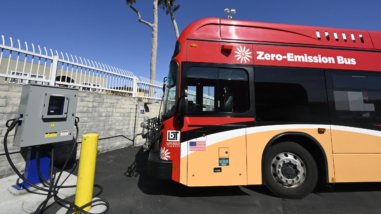This is the fourth in a five-part series by Hewlett Environment Program Officer Erin Rogers about what charitable philanthropists and nonprofits are learning about ways to convert widespread public support for clean energy and other climate solutions into policy action that can ensure a safer climate for all. Looking at – and beyond – Hewlett’s own grantmaking, Erin shares bright spots where groups are working together to build what academics call “political will” – the complex ecosystem of social forces that help decision makers prioritize problem-solving.
Read Part one: Building political will for climate action
Read Part two: Depolarizing climate action through supporting diverse ecosystems of organizations
Read Part three: Connection, cooperation, collaboration
Read Part five: Embedding equity
Dan Kahneman, author of “Thinking, Fast and Slow,” won the Nobel Prize for dispelling the myth that rational thought drives our decision making. He and many others posit that our fast, automatic, intuitive, and largely unconscious mode of brain function is dominant.[1] Conscious, rational thought, on the other hand, comprises the smaller share of our brain function, and bends and filters facts and information to fit our pre-existing and unconscious values, emotions, and prejudices.
So what does this have to do with climate change and political will? It turns out that “belief” in things like evolution and climate change is highly conditional on one’s values, emotions, and group identity – not their rational knowledge of facts or science. Professor Dan Kahan at Yale’s Cultural Cognition Project explains that “as their level of science comprehension increases, individuals with a highly secular identity become more likely to say they believe in evolution; but as those with a highly religious identity become more science literate, they become even more likely to say they don’t. Exactly the same thing is true on climate change. What people believe about global warming doesn’t reflect what they know; it expresses who they are.”
If acceptance of the scientific consensus on climate change has become an expression of who you are instead of what you know, this helps explain why persuasion efforts focused on providing more and more facts about climate science not only misses the root of the problem, but may actually make things worse.
Many grantees want help in experimenting with new modes of advocacy that move away from traditional forms that are heavily fact-driven, to those that more effectively apply what we are learning about how people filter information and make decisions. If our decision making is deeply affected by emotions like fear, love, desire to belong, loyalty to political tribes, and unconscious values and prejudices, can philanthropy help grantees navigate in this irrational landscape of the mind to communicate effectively and build the political will for rapid progress reducing harmful global warming pollution?
One experimental approach that Hewlett is supporting is the Climate Advocacy Lab. With a network of over 200 social scientists working across a variety of disciplines and a database of hundreds of research papers, the Lab serves as both a matchmaking service and central repository for work at the intersection of social science and climate and clean energy issues. The Lab has a resident social scientist on staff who fields questions through the Lab’s “Ask-an-expert” service, and connects advocates with social scientists to answer questions, distills cutting edge research, applies it to active campaign and communications efforts, and disseminates regular tips and updates to a wide network of NGOs. The two examples below exemplify some of the Lab’s applied social science work.
Most climate advocacy groups that do door-to-door canvassing focus on the facts about climate impacts (or solutions) at the door, but rarely tap into people’s values or emotions. The Lab is helping MN350, a climate justice organization in Minnesota, to explore a different approach, by pairing the group with social scientists and experienced trainers to test a “deep canvassing” model, in which canvassers ask people to reflect on values they hold dear, and then pivot back to how those values relate to climate change. MN350 will share their results with the broader Lab community once the test is finished, so that all groups can be learning together.
The Alliance for Climate Education (ACE) wanted to test different ways of building efficacy among its youth volunteers, giving them the training and resources necessary to have powerful conversations with their parents about why they care about climate change, and why it is important to take action now. The Lab paired them with both a social scientist who researches the psychology of climate change and one who studies intergenerational knowledge transfer. The learnings from the project will feed into ACE’s work to mobilize thousands of young people around get-out-the-vote efforts this fall through a relational voter education program.
Connective tissue — whether it be skilled coalition managers, or grassroots-to-grasstops connections, or heart-and-mind connections — can help build the political will to solve wicked problems like climate change. Philanthropic funding to support collaboration and partnerships, and strengthen relationships and networks has long been an important underpinning of social change. Better understanding the connection between heart and mind can help break through the near pathological tribalism that’s gripping our politics, find paths forward that don’t exacerbate the problem, design solution sets that appeal to deeper identities and emotions, and build the will needed for transformative solutions.




